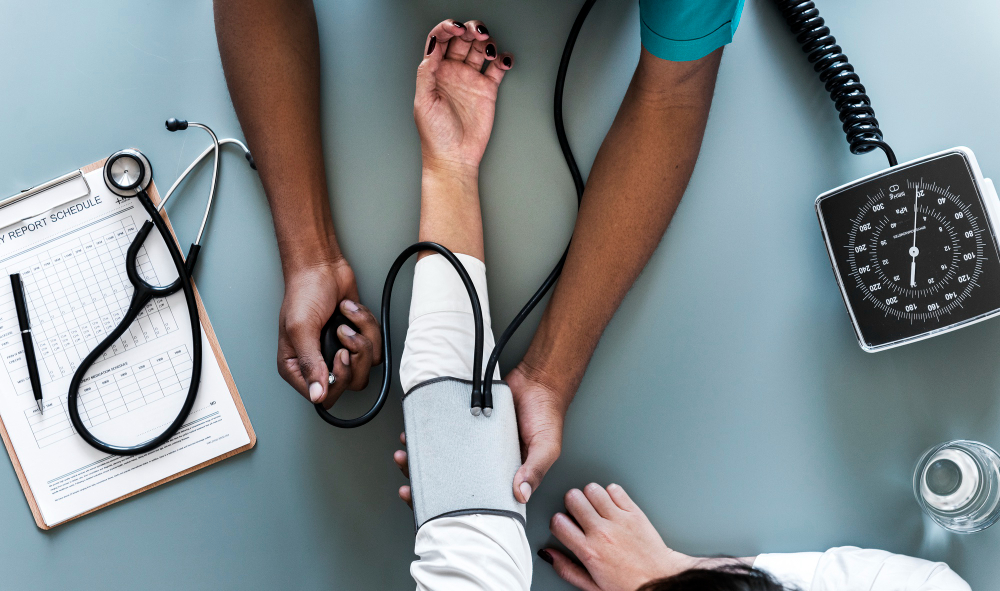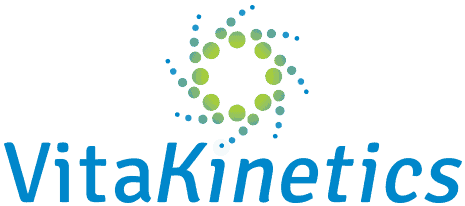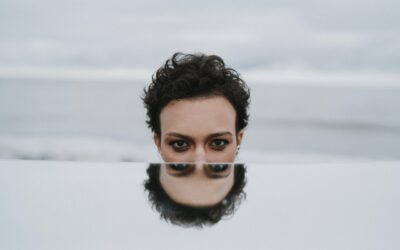Radically Resilient Health Podcast
Overcoming Major Diagnoses with Dr. Cassie Seacrist, P.A.
After receiving a serious diagnosis at an oddly young age, Physician Assistant, Dr. Cassie Seacrist learned how to take care of her whole health and be her own advocate for medical care. Dr. Seacrist is the cousin of Vitakinetics founder Carolyn Dolan and tells her story.
Connie Wray: (00:00)
Welcome to radically resilient health with Dr. Carolyn Dolan. This podcast is dedicated to your health and how easy it is to make radically resilient changes, but make him look good, make it easy. And yes, radically resilient health is not the absence of injury. It is really about transforming where you are right now and your health goals. And Dr. Carolyn Dolan has a wonderful guest for us today. She is a physician assistant, Cassie RIS. She is also Dr. Dolan’s cousin. So we’re so excited to have her on the show. Uh, Cassie, I’ve heard a lot about you. I heard you and I have a few things in common, so I’m excited to talk about you and your incredible health journey. Welcome to radically resilient health.
Cassie Seacrist, PA: (00:43)
Thank you so much, Connie. It’s very nice to meet you, and it’s great to be here with Carol and
Cassie Seacrist, PA: (00:50)
Exciting to be participating in this. Thank you for inviting me on
Connie Wray: (00:54)
Now. Are your other cousins gonna be upset that now the cat’s out of the bag that you’re the favorite one or are you guys okay with that?
Dr. Carolyn Dolan: (01:00)
Dr. Carolyn Dolan: (02:13)
Like most of your other patients go down this path, but this is the path I’m gonna take take. And you’ve really, um, been so inspirational. And so I’m really proud of you to be willing to share your story. Cause I think it would be really helpful for other to hear. And with that, I would like you to share your health journey. Oh, I forgot. I wanted to add too. She is such a blessing and she is a physician assistant and she works in the field of urology. And speaking of having somebody that you can talk to about anything uncomfortable and having a resource like that within our healthcare community is so valuable. And that’s, it’s just such a awesome thing that you are, gosh, you can talk about, you can make anyone feel comfortable talking about anything. That’s so amazing. So I’m really excited to share your story. So we’ll let you take it over for a moment.
Cassie Seacrist, PA: (03:10)
Um, so I’d probably say I’ve, you know, I’ve always been really active, um, whether it was, you know, sports as, uh, when I was younger, um, as I got probably into my thirties, I found salsa dancing and found an absolute love of salsa dancing, almost an addiction, um, to where I, you know, was going almost every night for several, several hours a night, um, was in really great health. I’d probably say somewhere, looking back around 2009, I was working in, in emergency room, um, was working a lot and going out a lot. Um, I got really sick around the time when swine flu hit. I was sick for probably, I don’t know, six to eight weeks kind of take a couple days off. You keep working and you keep you keep going. Um, and probably looking back, you know, I started to notice somewhere a year, two years, um, that I, you
Cassie Seacrist, PA: (04:18)
Um, you know, I was dancing just fine, but whereas, you know, back prior I could sing and dance to my heart content. All of a sudden I could only do one of those two things. I could no longer do both because I would get really short of breath. Um, and for myself, I was just thinking, oh, I need to do more exercise because you know, six to eight hours a day was not enough. Um, somewhere around, um, I had been on a bunch of vacation in 2011. Um, got really sick around Thanksgiving time and just sort of thought I’d maybe had some type of a pneumonia. Um, anyways, I had just started a new job. They had told me on an x-ray I had for a preemployment physical that I had an enlarged heart, which I thought was really odd because I was so active.
Cassie Seacrist, PA: (05:08)
I felt really, you know, I had felt fine. I had been sick, but I had felt fine. Um, and so anyways, went on, continued life, started a new job. Um, and all of a sudden around right before Christmastime, I went into a very, my heart started feeling very funny. I came home from a movie movie. My heart started to feel very funny, listened to my heart rate and it was R going very, very fast. So went to the emergency room. Um, they sort of checked me out. They were like, well, gave me a bunch of medications. Heart rate finally came down that led to a series of other things being very, sort of worried about it. Um, and a bunch of other tests that were done because we asked for them, um, as a healthy or considered healthy 34 year old person. Um, most of the people that knew me weren’t in the medical world, weren’t necessarily very concerned about it.
Cassie Seacrist, PA: (06:09)
But after asking for specific heart test like an echocardiogram, um, we decided also been on, you know, long, long flights to China and other places. So they were worried about other diagnoses. Anyways, a couple days later, I was diagnosed with congestive heart failure with an ejection fraction of 20 to 25, which is very, very low. Um, so at 34 years old, that sent me into a, um, somewhat of a tizzy because most of the time you are, there’s either something that has, um, distinctively sort of had that happen. Whether, you know, it happens to pregnant women, um, or sort of other things, you know, older people will, you know, you hear this diagnosis in older people and it was very hard for me to understand, well, how did this happen to me? Um, so I was very quickly put on a bunch of medications. I was told not to have more than, you know, I don’t know, 2000 milligrams of salt, which is really hard to do, um, and put on a bunch of, you know, blood pressure and heart medications at the same time I was starting a new job.
Cassie Seacrist, PA: (07:21)
So I was trying to, you know, stay with, um, you know, continue to do my job. Um, and it was just a very, very sort of scary, scary time. I was told I was not to lift over, you know, 50 pounds and to do all of these things that you know, were very, um, not necessarily something that a 34 year old woman wants, wants to hear. So anyways, was started on a bunch of medications, which would drop my blood pressure down to very, very low levels makes you feel really not very great at all. Cuz I already had very low blood pressure to begin with. Um, so that was kind of the beginning of this, this journey, which is now this year, probably in the next couple of weeks will be about 10 years since my, since my diagnosis.
Dr. Carolyn Dolan: (08:07)
Wow. And I remember when you first got diagnosed was right around the same time I had started my health journey and we came down and we got rid of all the salt in your cabinet. We went grocery shopping. We like threw out all the junk and we were on it. Um, and you, you found, I mean, this isn’t specifically about salt per se. You found your balance with, with salt where you can consume enough where you can continue to have enough blood pressure, you can stand up. But, um, I, I remember too with that diagnosis cuz you and I both have a healthcare background and we’re like, but this doesn’t make any sense. I’m too healthy. I’m too young for this. And I remember I said, you need to go to cardiac rehab with a physical therapist so you can keep exercising and you had to really kind of push for that because they were like, oh no, you’re fine.
Dr. Carolyn Dolan: (09:04)
You’re like, no, no I’m I need this. And you’ve really have been able to, and continue to be able to just say, look, I know I don’t look like the normal person you recognize with this diagnosis. So we’ve gotta continue to do things a little differently. Um, that’s been really good, but tell us a little bit more about how any of those lifestyle changes you feel like have helped you, um, through that diagnosis or, um, get to get you to where you are. Cause I always, we always joke about how you are healthy or still yet with the CHF than, you know, 95% of the population in our age group.
Cassie Seacrist, PA: (09:46)
Yes. Well, I think it’s definitely been, you know, a, a long journey and one of acceptance and learning, you know, to deal with the, you know, these are things that I can’t change. It’s been 10 years. My, you know, my numbers had not changed. They have stayed the same, which is great in the sense that you know, that the condition hasn’t gotten worse. Um, but you know, it also hasn’t gotten any better. And I’d probably say one of the most important things that I have learned in this journey is really sleep. I was not a sleeper. I have never been somebody, I, I like to sleep, but there was too many other things to do. Um, that sleep was something I always sort of put off. And so learning to really that I have to get, I know that if I want to remain really functional and not feel like my battery is drained, I need to sleep for eight to 10 hours a night. And when I do not do that, I hit a wall. My energy is gone and I feel like somebody has unplugged me, but between really making sure that I sleep, making sure that I am having a, a, you know, a healthy diet, um, really, you know, it allows me to be able to continue to do the exercise and do the activities that I really like to do that make me feel, you know, good. And like my body is, is still continues to be in shape.
Connie Wray: (11:18)
I have a question. You mentioned, uh, you and Carolyn, you, you got this diagnosis, you get together and you start cleaning out your, your cabinets and your cupboards. And was that a challenge for you or was it that you had this heart condition, this was the time that you needed to make that change? Was there a period of still struggling with the having to change those habits?
Cassie Seacrist, PA: (11:44)
I, you know, I, I don’t think so. I never saw myself as somebody who really ate, you know, terribly right. Um, you know, it was probably not as great as I eat now, but I always thought that I ate relatively healthy. Um, but you know, that being said, we went in, um, and you know, I did get rid of a lot of, sort of the, the gluten in my diet. Um, and a lot of those types of processed foods that one eats when, you know, you’re sort of on the move and you got things to do and you don’t have time to kind of sit down every single night and really prepare, um, your, your meals. But overall, I think that’s been, you know, it’s, it’s, it’s finding balance in life between enjoyment and going out and enjoying those things. And then once again, um, you know, really keeping it to the sort of healthy, fresh vegetables and proteins and, and things like that.
Dr. Carolyn Dolan: (12:43)
And that’s the good
Cassie Seacrist, PA: (12:44)
Salt. That’s never, we, we decided early on that limited salt diet was not for me because that just sort of dropped my individual blood pressure down to nonfunctional levels.
Dr. Carolyn Dolan: (12:55)
Yeah. But at the very beginning, we were like, we’re you, these are the rules we need to follow. We’re gonna do it to the T and we’re gonna, like,
Cassie Seacrist, PA: (13:04)
We are rule,
Dr. Carolyn Dolan: (13:05)
Yeah, we are gonna make this happen. And then we’re like, Hmm, that’s not gonna totally work. But you’ve also really been able to find a balance of, like you mentioned, um, where you’ve, again, this whole idea of self-awareness. We talked about this with our other, um, interview Lori, and about this, self-awareness where you’re identifying, what are those things that have, that you need in your life and, and the things that you can manage for the enjoyment to maximize the enjoyment. And, you know, we talked about gluten and salt and you’re like, listen, if I can’t have enough salt in my diet where I can function, then that’s not gonna work out for me long term. Um, and the physical fitness part of it, where we, I remember going to the physical therapist, at least the first appointment where we’re like, we just need to know what, what is gonna be the best thing for me. And I’ll do it again. We’re following all the rules. We’re like, we’re gonna win this game.
Cassie Seacrist, PA: (14:06)
And it was, it was, it was a big, it, it definitely helped make me in a very scary time and a very scary situation for me at the time. It really gave me some parameters of how I could continue to, you know, exercise and continue that part of my life and do it in a very healthy way. And the biggest, the biggest takeaway that I really, um, took away from that the, the physical rehab part of it was just that I, because of my condition need to always stay in aerobic exercise. For me, going into anaerobic exercise is not an option. I can do more damage to my, um, to my heart. And so it is best as long as I can talk and exercise, as long as I can, you know, do those things and I’m getting enough oxygen, then I am cool to do whatever I can do.
Dr. Carolyn Dolan: (14:58)
Um, how do you feel, we, we, I briefly mentioned about what your line of work is now, but how do you feel like your experience and your health recovery experience has helped you become a better clinician in, in your specialty of urology?
Cassie Seacrist, PA: (15:18)
I, I think it provides a lot more empathy and compassion for people who are going through medical issues. Um, especially, you know, in those moments where a lot of patients are kind of wondering like, why me and I, you know, I want the answers as to why me, and sometimes the reality is we don’t necessarily know why this has happened to me. There’s not necessarily one answer. Like this is what happened. This was the cause. And, you know, you go from there and I think being able to relate to patients, um, and have that discussion, it’s not a discussion I have with all patients about my own issues, but, you know, sometimes I, I find it, it leads to a lot more empathy for what patients are going through when they get big diagnoses, because, you know, they’re big things that make you think about life choices and where your life is going and what will happen. Um, and that just leads to a lot more sort of compassion and empathy.
Dr. Carolyn Dolan: (16:19)
Well, I
Connie Wray: (16:19)
Think, think it also is
Dr. Carolyn Dolan: (16:21)
Go ahead, con
Connie Wray: (16:22)
An opportunity for you to really listen to the patient, right? For you, you felt like people weren’t listening to you and what you felt you knew what was best. I, I always believe that, yes. You know, we have these incredible medical doctors to, to give us knowledge, but if you are not feeling like you’re getting what you need, then you need to continue to, to be your own advocate. And I think that that is probably something that you can look back on now and have that empathy when you’re looking at the patient who’s on the other side.
Cassie Seacrist, PA: (16:55)
Exactly, exactly. And to also go through, you know, it’s been a, a journey, my sort of, um, Western meets sort of Eastern journey I’ve gone on, you know, sort of all of, all of the journeys, um, and have, you know, experimented in, in, in different things, knowing that, you know, things may not work knowing that, you know, I may not get answers and that this is sort of a, a more, especially when it comes to sort of the, um, sort of Eastern medicine part of it that I might not necessarily see that hopefully it would be more preventative in any type of, sort of worsening of the condition. Um, but in my, my doctors, my Western medicine doctors have been very open to at least allowing me to go on that journey and saying, Hey, that’s fine. Just include me in the conversation. I wanna know what you’re taking. I wanna know what you’re doing. And that has really meant a lot to me, um, that they have listened to me and that they have been willing to knowing that I was so young when this happened, that I needed to go on those journeys. Um,
Dr. Carolyn Dolan: (18:05)
Well, I think one of the things that I was gonna mention was this idea of acceptance, but also openness. You have really got a, a team of doctors now that are open minded, but that you also trust there’s a mutual trust there where you can communicate easily with them back and forth. You know, we we’ve talked about that and how important we talked about this on a prior podcast and trusting, basically trusting the process, Western medicine and Eastern me medicine are not mutually exclusive, but they, they can be while you’re not necessarily actively working with a Eastern provider currently, you’ve gained a lot from that journey. You’ve gained a lot of additional tools that you’ve brought to your, your current protocol that, you know, for thriving, where, where you’re at, but circling back to this acceptance piece, that is one of the other things that sort of inspired me to do this podcast is this radically resilient health idea.
Dr. Carolyn Dolan: (19:09)
You know, you can’t always control the everything, and, and sometimes the more you try to control those things or prevent something, and then it happens, you, you really have to come to an acceptance place and that’s really where then you’re, you’re managing it. Right. You know, um, while there’s a lot of things you’ve lost with this diagnosis, there also is so much that you’ve gained, um, because of it, this, um, new insight to communicating and interacting with patients while it’s not specifically about your condition, I think is just invaluable to, um, this integrative process of healthcare and, and rather than sick care, but really promoting healthcare. You and I have talked about it from a patient perspective too, you know, there’s things that you pay attention to now because of your own experience in that integrative world, where you’ve seen pretty profound changes with something simple as vitamin D three, right? So, um, that’s really, it’s really powerful, this idea of acceptance, I think, and something, uh, lessons I need to continue learning, you know, because, because we do tend to try to be perfectionist or rule followers, or we’re gonna get the a, you know, we’re gonna do it the best, the best. And sometimes gosh, we’re into swearing, right? So sometimes poop happens and you just have to clean up the poop and, and, and just get it done, figure it out and figure out a way to make it work for you.
Cassie Seacrist, PA: (20:42)
Exactly. Well, I think, you know, that, I think one of the big things that take home is that once again, there’s a lot in life that you don’t have, you know, control over at the same time that I was diagnosed with heart failure, I was also diagnosed with pre ovarian failure. So at 34 was finding out that, you know, I wasn’t going to be able to have my own children was going through menopause along with all of these other things. And so having to sort of deal with all of that and come to a, an acceptance of, you know, or a place of peace around these are the things that happened. I did not do this to myself. I, you know, I thought I had been living sort of my best life, but, you know, once again, poop happens, this is the journey that I’m on and how do I make lemonade from a whole lot of lemons that I had no control over that ended up at my doorstep. Um, and that’s, you know, that’s, that’s really what it’s been about. And I think through, you know, whether it’s, you know, therapy and wonderful friends and family and support, um, now a wonderful, you know, loving husband who also provides so much support, um, in
Dr. Carolyn Dolan: (21:57)
The form of tacos, in the form of tacos
Cassie Seacrist, PA: (22:00)
Tacos. Um, but you know, is finding that resilience to keep, keep going on. And that, you know, I can have a very sort of healthy, um, active life and doesn’t have to slow me down. I have to sleep more, but, you know, it turns out that’s a really good thing and probably something I needed a lot earlier. Um, and just once again, accepting the fact, this is my journey in this lifetime. And I, the only one who is live it, and I have a choice to either live it the best way I can, or to be really miserable and feel like a victim the whole time. And I, I don’t want to feel that way,
Connie Wray: (22:38)
Cassie, thank you so much for sharing your story. And I think exactly what you’re saying. This is what radically resilient health is. You move and adjust. It’s not that you’re not gonna face illnesses or traumas in life or injury, but it’s how you respond. And I think one of the things that I’ve learned from Dr Dolan is really looking at the glass half full as opposed to half empty. And that is another component of that radically resilient health. What does this mean in shifting my, now that I have this diagnosis for you? What was that shifting looking like and how, how you were able to do it, to fit your way. And I think that’s really, if you look at this broad conversation that we have on this podcast, it’s about finding your journey and what works for you. And every journey is different, but just to know each day, you know, if you fall off, you get back on and you make the next change. We’re not all perfect at well, Carolyn is, but we are not all perfect. And it’s,
Cassie Seacrist, PA: (23:39)
It’s no, you’re not, you’re not always gonna feel positive about it. You’re not always gonna be optimistic about it. You’re gonna have moments where you feel like you are down in a dark hole and, you know, you just gotta keep sight of the little light. And sometimes you gotta wait for that hand to come down
Connie Wray: (24:00)
And
Cassie Seacrist, PA: (24:00)
Hold your hand or to help get you out of there, cuz you will get out of the hole. It’s just a matter of getting to the point where you can do that. And it’s okay to be in the hole for a little bit, but you know, you gotta stand up, reach for the light and get yourself out of it, which you absolutely can do.
Dr. Carolyn Dolan: (24:15)
Well. Love you, honey. Thank you so much for being brave enough to share your story. Absolutely love you to pieces
Connie Wray: (24:23)
Cassie. See Chris, thank you again for sharing your story here with us on radically resilient health and good luck to you. Uh, I know that this experience is just making you a better physician in the end. And I think that that’s the positive that we can see from this. We, your patients are able to benefit from this experience. And I think that that is a Testament to, again, radically resilient health, you’re taking your experience and you are able to relate to your patients better. So thank you so much. And thank you again to Dr. Carolyn Dolan for creating radically resilient health, a podcast that you can really use as a touchstone to help you in your health journey. You can also find out more about Vitos by visiting their website@vitos.com. You have been listening to radically resilient health with Dr. Carolyn Dolan.

Mena
Radically Resilient Health Podcast Small Steps Conquer Mountains with Special Guest Mena Spodobalski Evoke Fitness owner, Mena Spodobalski, shares her joys and struggles toward radically resilient health. Health doesn't always have to seem radical. The best workout...
Recovery From Substance Dependency With Lori Windfelt
Radically Resilient Health Podcast Recovery From Substance Dependency With Lori Windfelt Radically Resilient Health is not about the absence of disease, injury, or stress, it is the ability to recover and make positive choices to support your overall health. Lori...
Emotional and Mental Resiliency – With Special Guest Dusty Braun
Radically Resilient Health Podcast Emotional and Mental Resiliency With Dr. Dusty Braun Our mind and body are intimately interconnected in ways that we can't really comprehend outside of science. We oftentimes think ourselves or our minds as separate from our body,...
Available at our partner locations

690 West 2nd St. Suite 101
Reno, NV 89503

13981 S Virginia St #402b,
Reno, NV 89511








